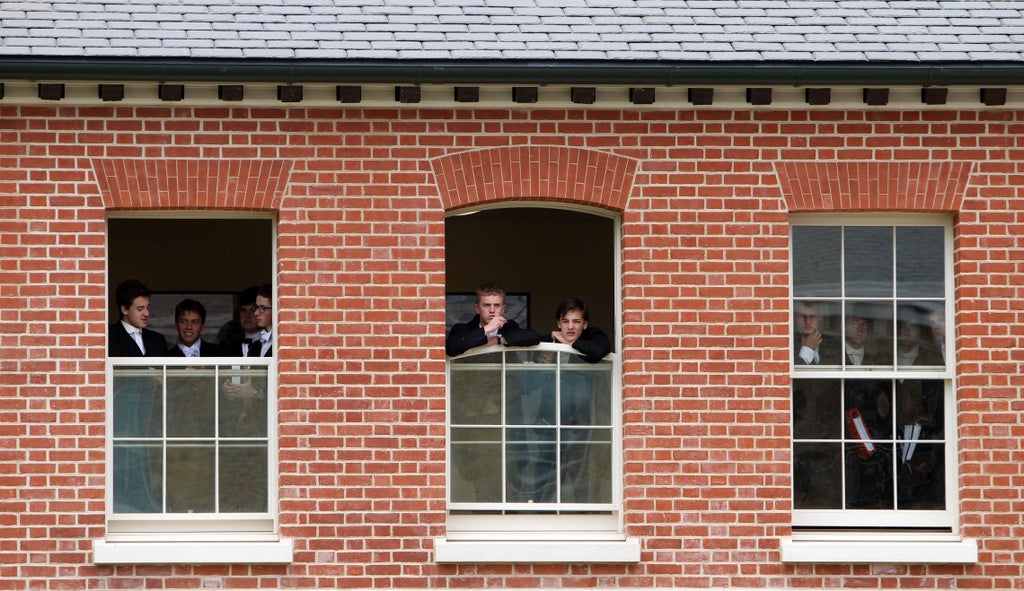
Eton College has said it will give each of the three selective sixth forms it is planning to open in areas of disadvantage an additional £1 million per year on top of current funding levels.
The private school will open three selective sixth forms in Dudley, Middlesbrough and Oldham in partnership with Star Academies, all areas included in the list of 55 education “cold spots” in the Government’s Levelling Up White Paper.
The private school will provide a “top up” of £2,000 per year for each student, a 50% uplift of state funding for each pupil.
The colleges plan to educate 480 pupils over two year groups each, and they will be will be modelled on selective sixth forms in the capital such as the London Academy of Excellence.
High-achieving pupils at GCSE from poorer backgrounds will be encouraged to gain top A-level grades, enabling them to study at Oxbridge and other elite universities.
A spokesperson for Eton said that the colleges would be “designed to offer a rigorous and intensive academic curriculum because this is where we believe we can make a transformative difference”.
They added that all three areas would need “hundreds of new sixth form places over the next few years in any event and all three show a significant gap between those students who achieve strong GCSE results and those who achieve the kind of A-Level grades required for admission to the top universities”.
The litmus test for social mobility will be whether the new sixth forms genuinely select talented pupils at age 16 from all backgrounds – that means taking into consideration that some will have achieved highly in extremely challenging circumstances.
They said this meant the colleges, if approved, would provide an offer that would be “additive rather than disruptive” to other post-16 institutions in the area.
The spokesperson said that Eton was designing the admissions policy alongside University College London’s Centre for Equalising Educational Opportunities so that pupils receiving Pupil Premium, Looked After Children, and those who would be “first in family” to attend university would be prioritised, as well as those who came from particular postcodes.
“As well as the intense, teaching-heavy curricula on offer, there will be extensive pastoral support and enrichment opportunities via clubs, societies and university access tutoring,” they said.
They added that they would offer EtonX future skills courses for free to all partner schools in these towns, as well as other digital content through the school’s Eton Virtual platform.
Pupils in partner schools would also be able to access careers education, external speaker events and enrichment programmes run by Eton and Star Academies.
“The kind of provision we envisage is simply not possible under the current per student funding provided by the Government for 16-19 settings,” the spokesperson said.
“As a charity for the advancement of education, Eton is committed to enhancing educational opportunity where it feels it can make a difference and so will be contributing funding approaching £1 million per year per college in perpetuity.”
Lee Elliot Major, Professor of Social Mobility at Exeter University, questioned whether the sixth forms would be open to pupils from a diverse range of backgrounds.
“The litmus test for social mobility will be whether the new sixth forms genuinely select talented pupils at age 16 from all backgrounds – that means taking into consideration that some will have achieved highly in extremely challenging circumstances,” he said.
“While the extra boost in funding is welcome for the lucky pupils who attend, it does beg the question as to whether all students require these higher levels of funding to fulfil their potential.”
A Department for Education spokesperson said: “The Levelling Up White Paper set out our intention to open a targeted number of new 16-19 free schools in select areas where they are most needed to ensure that talented children from disadvantaged backgrounds have the opportunity to progress to leading universities.
“We welcome proposals that will drive up standards and transform the life chances of young people.”







